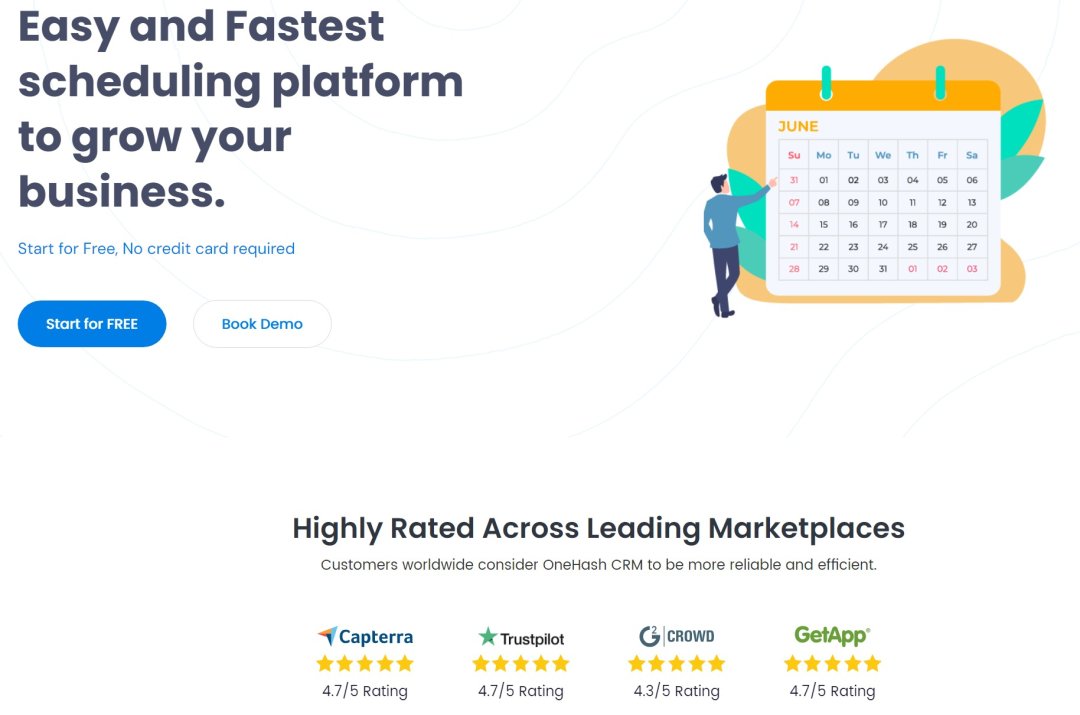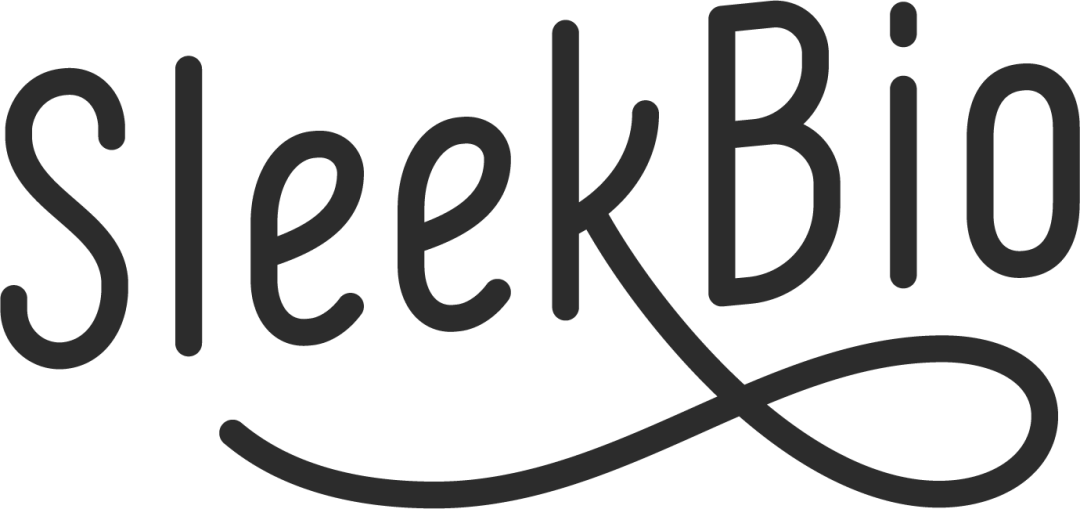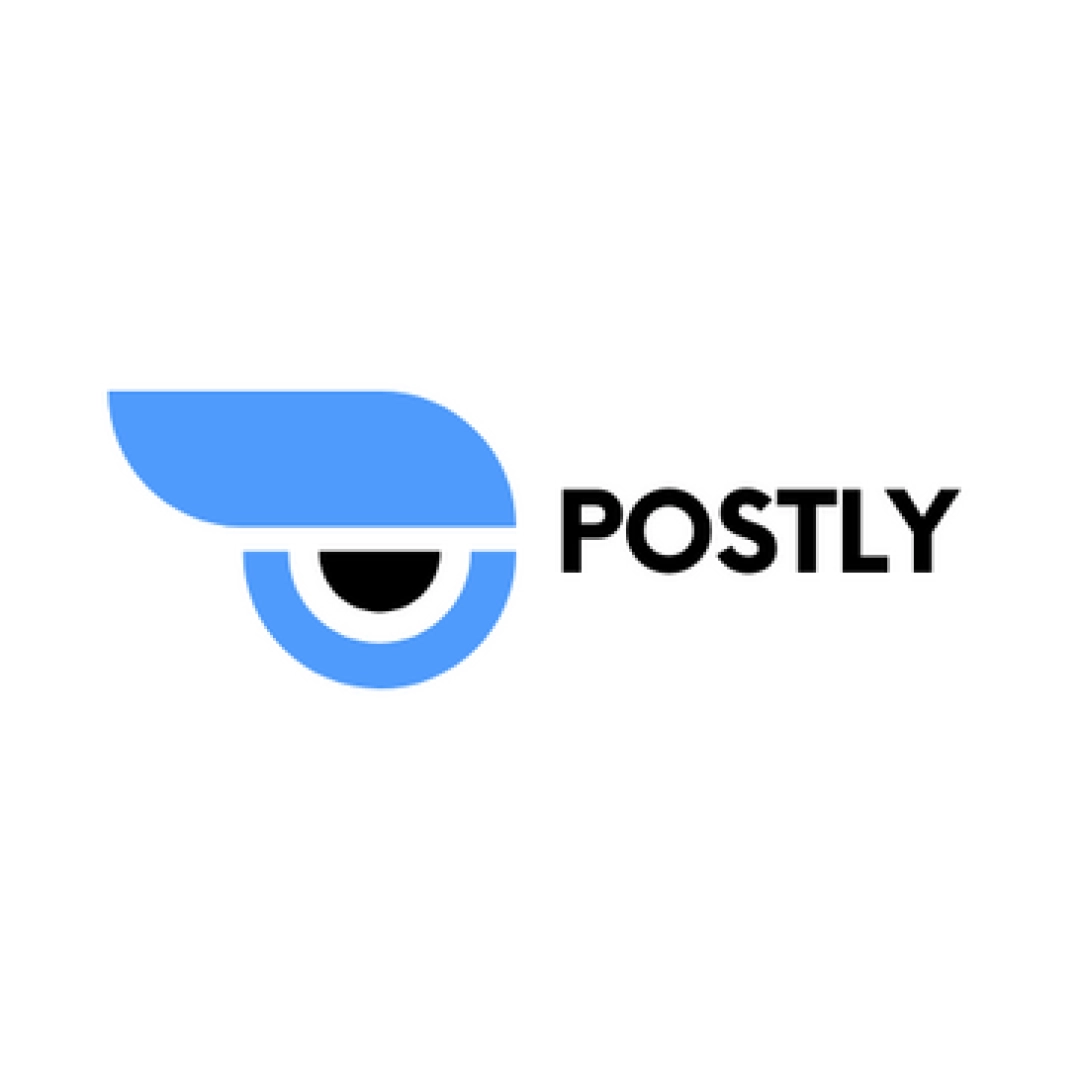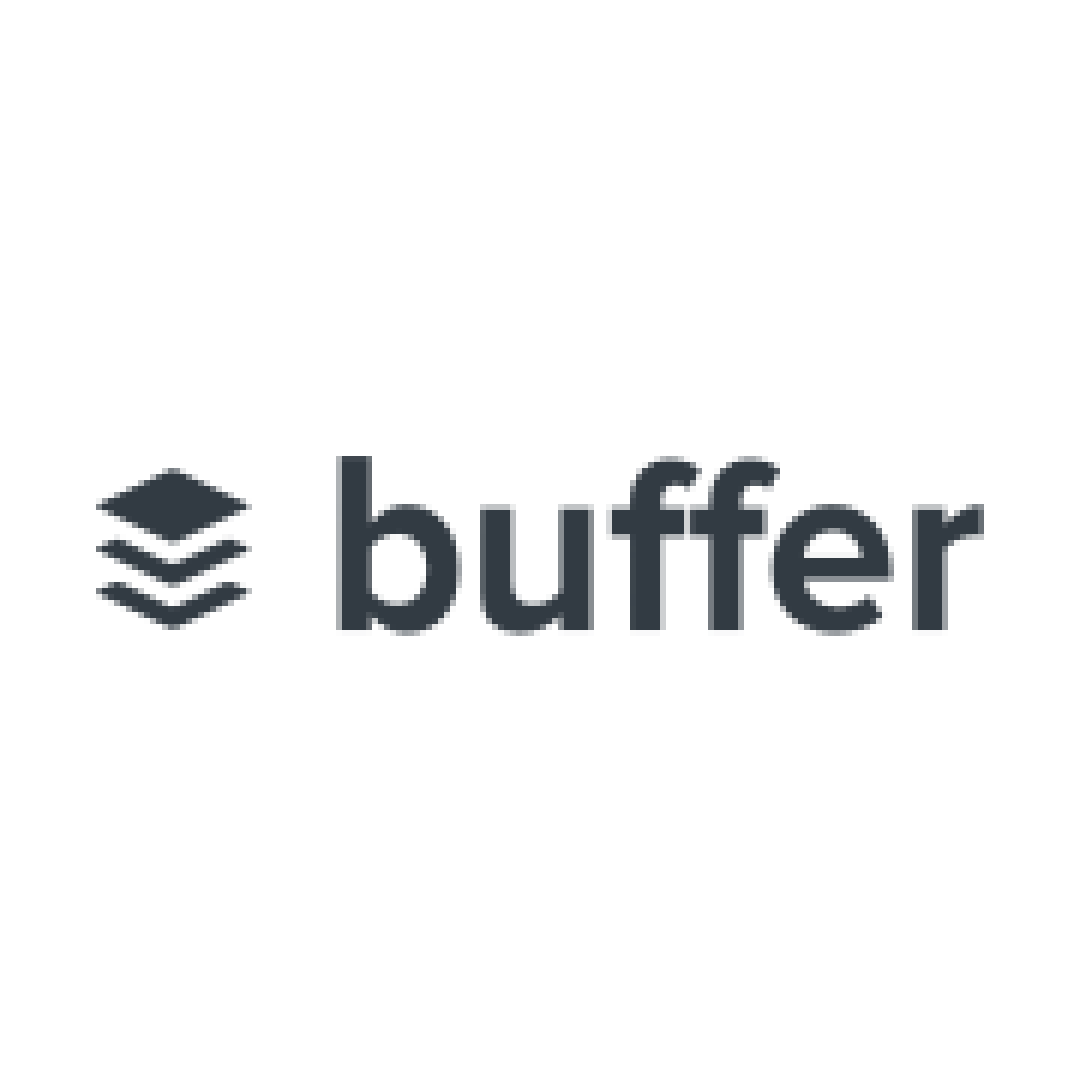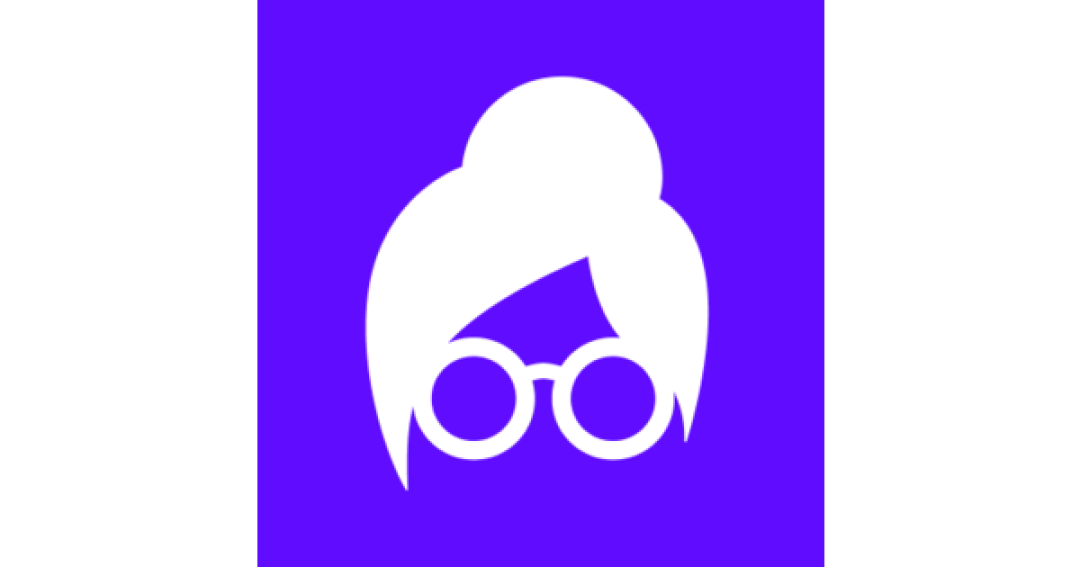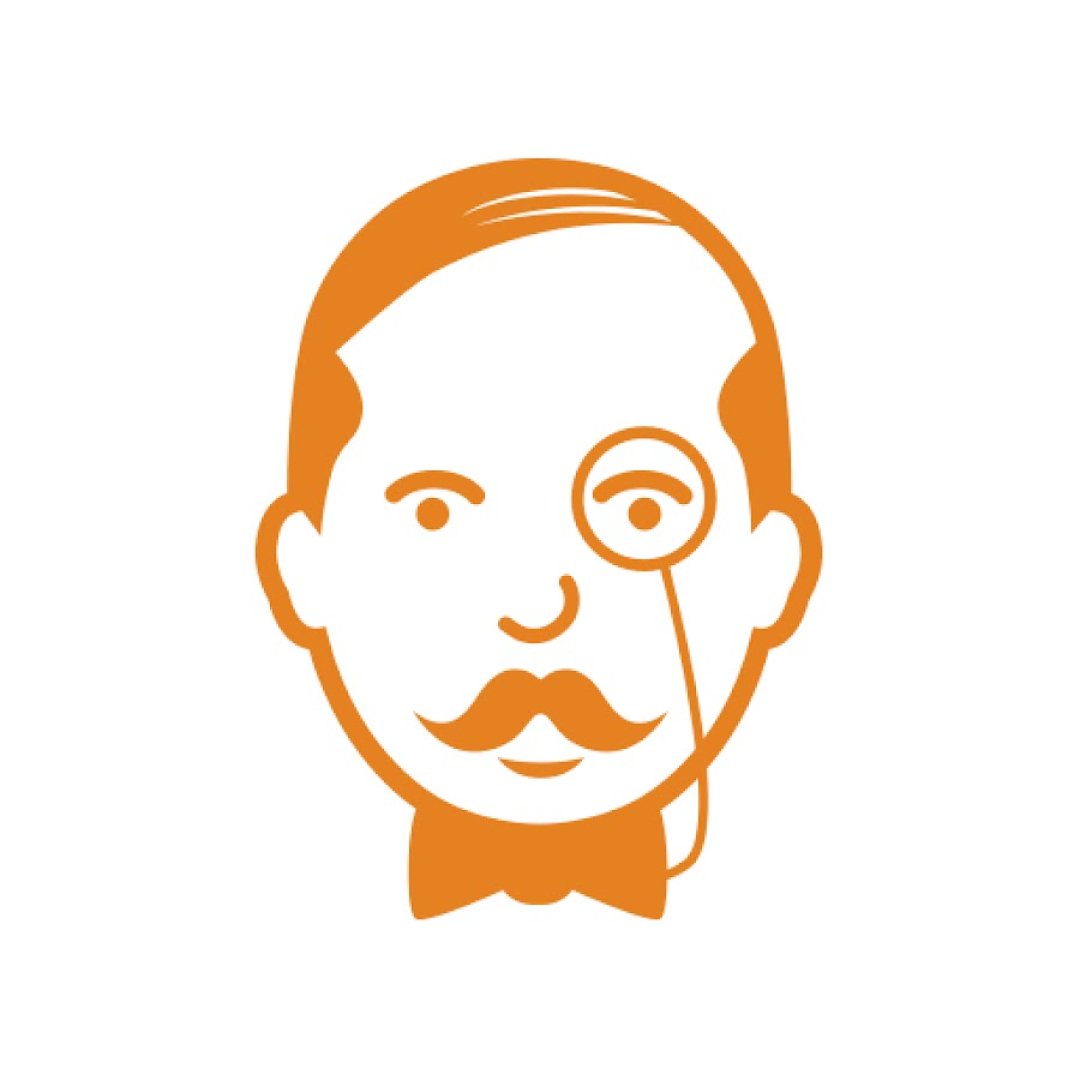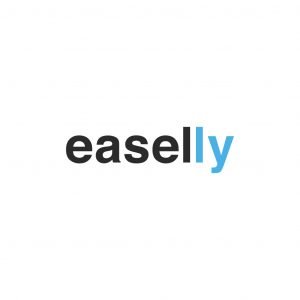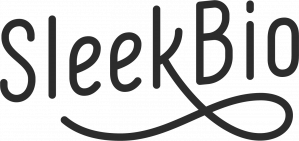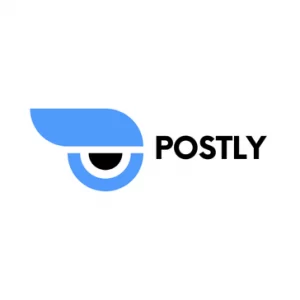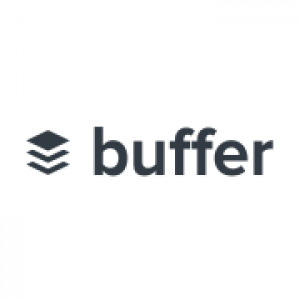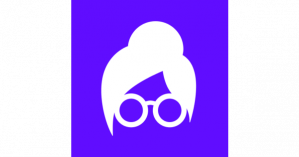Software as a Service Companies
SaaS & digital products

Get the best tools for your Business
Choose category

- Show all
- Popular
- Best rated
- Choose category
- All categories
- Digital
- AI writer
- Cold email
- Communication
- Customer Relationship Management
- Email Marketing
- Lead Generation
- Plagiarism detector
- Social Media
- Video editor
- Video hosting
- Website
Looking for Suggestions?
Check top shortlisted products


SaaS Resources by Featstart
Sold by Invincible Lion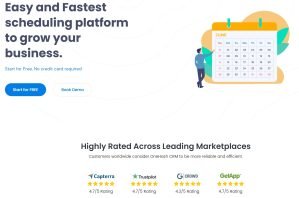
OneHash Cal
Sold by OneHash


Questions
We provide unique, best-in-class tools to give us the edge
The SaaS LTDs are handpicked, reviewed and tested by top professionals in their respective domains to give you the best possible buying experience.
The affiliate products are personally used or tested by Featstart team.
You can use Paypal, Stripe, Skrill, Payoneer and many other payments systems, as well as bank payment, card payment, Android Pay, Apple Pay, Samsung Pay
Yes, you can sell your produtcs on our site. You can register vendor account on registration page
The digital products will be delivered online by the vendor on their respective website or through email. You can follow the instructions after purchase.
We provide a 60 Day refund policy on all LTDs, 30 Day refund policy on 1 Year deals.
For affiliate products, please read the Refund Policy of the respective product on their website.
Software as a Service Companies
Software as a Service (SaaS) businesses have redefined software access, usage, and pricing for various customers in today’s digital-first world. Whether it be a traditional model where software had to be bought outright and installed on particular machines while managing complicated licensing, SaaS has changed all this.
By contrast, SaaS companies deliver software over the cloud via subscription so that users can leverage powerful software without needing local installation, costly upfront payments, or IT maintenance.
As a result, big and small companies can use advanced software products without the hassles of owning and maintaining them. SaaS has provided a backbone of business for the modern world, from startups who wanted an inexpensive tool to enterprises searching for scalable solutions.
Pioneering the industry The wave of innovation has been led by industry giants such as Salesforce, Google, Microsoft, and Adobe, but newbie disruptors have continued to shake up verticals. With SaaS adoption increasing, so is the influence of SaaS on all aspects of business, communications, and collaboration, from data management to CRM.
What is SaaS? Understanding the Basics of SaaS Companies
Software as a Service (SaaS) is a software delivery model that delivers applications via the cloud and the internet. Traditional software is installed on individual devices, whereas SaaS applications are located remotely on a provider’s service and managed from the cloud. SaaS solutions are highly accessible and flexible, allowing users to log into these applications via a web browser or an app on virtually any internet-enabled device.
In Software as Service Companies, the service provider hosts everything, including updates and security, which falls on the provider, reducing overall responsibility for end-users. SaaS applications typically involve a subscription instead of being sold via a one-time purchase at a price point per product. Instead, users pay monthly or annually to gain access to the software. Not only does this subscription structure allow for software that was previously feasible only to enterprises to be affordable, but it also enables businesses to up or downscale usage as per requirement.
Key Characteristics of SaaS Companies & Products:
1. Cloud-Hosted: SaaS applications are hosted on the provider’s cloud infrastructure.
2. Subscription Pricing: Users pay for access regularly, reducing the up-front cost.
3. Automatic Updates & Maintenance: Providers handle all the updates and maintenance, so you always have the latest features and security patches.
4. Platform Accessibility: SaaS software is accessible by a user on any device that has an internet connection, ensuring flexibility and convenience.
SaaS Companies span numerous categories and industries such as:
- Customer relationship management (CRM) systems (Salesforce).
- Productivity suites (Google Workspace).
- Creative tools (Adobe Creative Cloud) and specialty SaaS platforms like Shopify for e-commerce businesses.
Why SaaS Companies are growing in popularity? Reasons behind its increasing adoption
The Most Important Factors in End User Decision Making to Consume products of Software as a Service Companies
SaaS Companies are growing in popularity for several good reasons. Not surprisingly, those characteristics make SaaS appealing to organizations of any size, from startups and small businesses to multinational corporations; individual users also value these benefits.
1. Accessibility
Access Anytime: Accessible Anytime, Anywhere: Products of a SaaS company can be accessed from anywhere the network is available, making remote work more accessible and working part easier. With businesses having begun the move towards more hybrid and remote working, this accessibility is beneficial.
Cross-Platform Functionalities: SaaS software is usually compatible with various platforms, such as desktop computers, tablets, and mobile devices, allowing users to access their tools the way they want from anywhere.
2. Scalability
Dynamic Resource Allocation: With Software as a Service, companies can scale their usage up or down as needed. Companies scale with more users or switch to a higher service tier, as required, without significant changes to Infrastructure.
Flexibility for Different Requirements: SaaS providers sell from the most essential individual plans to high-end enterprise solutions, making them flexible enough for any organization.
3. Cost-Effectiveness
Lower Initial Costs: Traditional Software usually requires a significant upfront investment, while SaaS solutions are most often billed as a monthly or annual subscription. Such a model turns more complex software solutions into something valuable and affordable, especially for small and medium-sized businesses.
Reduced IT Costs— Software as a Service Companies manage Infrastructure, updates, and security, eliminating the need for businesses to invest in expensive in-house servers or IT resources to manage software.
4. Maintenance and Security
Benefits of Automatic Updates: The SaaS companies automatically updates the application with new features and security patches, reducing downtime while improving security.
Robust Security: Top-level SaaS companies spend heavily on security, from data encryption to secure access controls and compliance with industry regulations. Such high-level security is often better than what businesses would do alone, so SaaS solutions are a trusted way to protect sensitive data.
5. Ease of Integration
Easy Integration into Other Software: Many SaaS solutions are built to integrate with the most popular available tools and platforms (CRMs, ERPs, productivity software), creating a connected set of solutions.
Customizable APIs: Many SaaS companies have APIs that allow you to integrate the application with your tech stack and workflow and provide a customized experience. SaaS has become many Organizations’ preferred Software model due to its Accessible, Scalable, Cost-efficient, and Easy-to-use architecture. While companies aim to simplify, reduce costs, and keep themselves agile, SaaS remains the name of the game. The broad utility of SaaS has led to the explosive growth of the SaaS market, making it one of the main engines propelling the future of software and technology.
What is a SaaS (Software as a Service) Company?
A SaaS company provide software applications hosted in the cloud, so users work with online tools and services that are not installed on hardware like traditional software. SaaS stands for Software as a Service. By hosting these applications on remote servers and taking care of everything from maintenance to security, SaaS companies offer an intuitive plug-and-play experience that allows businesses (and individuals!) to focus their time on what matters instead of software logistics.
These include everything from communication and productivity tools to industry-specific applications — customer relationship management (CRM) software, project management, design, and more. Thanks to this flexibility, low cost of entry, and scalable architecture, these companies are now embedded directly within modern business infrastructure.
Characteristics of Software as a Service Companies
Some fundamental characteristics set SaaS companies apart from traditional software providers. These characteristics enable them to provide value for consumers while being efficient and scalable.
1. Cloud-Hosted Services
By leveraging cloud infrastructure for their applications, SaaS companies can quickly provide access via the internet to a relatively low number of applications. SaaS application is cloud-based software that is hosted on an external provider server, unlike traditional applications that are installed manually on devices. It also means they will not have to purchase local hardware or dedicate a server because anyone can log in and simply use the software on any device enabled by the internet.
SaaS companies need to process vast amounts of data and reach users worldwide, where cloud hosting comes in handy: resources increase with demand. These cloud-hosted SaaS solutions spare enterprises the high-end infrastructure costs while making applications and services available to employees virtually when remote work involves a distributed workforce.
2. Subscription-Based Model
SaaS Company pricing model — The subscription SaaS companies Instead of making a one-time purchase for software, users subscribe to SaaS applications on a monthly or yearly basis. Their pay-as-you-go structure offers more options to users, letting them select a plan depending on their needs and budget.
The subscription model usually offers several tiers of pricing:
Basic Plans: Designed for users or small businesses requiring necessary features at a low price.
Advanced or Pro Plans: For large organizations with more complicated requirements that give access to higher functionality, more excellent storage, or dedicated support.
Enterprise Plans — Configuration packages for large enterprises with advanced security, compliance, and scalability capabilities.
This allows businesses to control costs while maintaining the flexibility to move up when necessary. By eliminating the large upfront costs and replacing them with recurring monthly or quarterly payments, this approach enables companies of all sizes (though particularly SMBs and startups) to access high-quality software.
3. Automatic Updates
A second significant benefit of SaaS Company is that there is no need to manage software updates, maintenance, or security hands-on. A traditional model will have users update the application manually, which always brings all kinds of issues with compatibility and security. In the case of SaaS, all updates are performed by the providers on their servers, so users always enjoy new features and security improvements.
The automatic update process is advantageous to providers and users. For SaaS companies, it guarantees their software quality and user satisfaction. It saves users from the hard work of installing updates, so there is less downtime and no need to call IT support. The application automatically receives security patches, bug fixes, and new features in the background to provide a more stable and secure experience.
Learn about the three cloud service models: SaaS, PaaS, and IaaS.
SaaS is one of the most famous cloud service models, but it can be easily confused with two other cloud models: PaaS (Platform as a Service) and IaaS (Infrastructure as a Service). Each model is aimed at different use cases, from end-users to developers and IT administrators.
So, let me lay out a quick comparison of these three cloud service models
- SaaS (Software as a Service)
Definition: End-user applications delivered over the internet,
Primary Use Case: Used by businesses and individuals for everyday tasks and business processes
Examples: Gmail, Zoom, Salesforce - PaaS (Platform as a Service)
Definition: Development platforms providing tools and environments for building, testing, and deploying software applications
Primary Use Case: Used by developers to build, test, and deploy applications without managing the underlying infrastructure
Examples: Google App Engine, Heroku - Infrastructure as a Service (IaaS)
Definition: Virtualized computing resources delivered over the internet, including storage, servers, and networking
Primary Use Case: Used by IT administrators and developers to manage and control resources on a pay-as-you-go basis
Examples: Amazon Web Services (AWS), Microsoft Azure
SaaS (Software as a Service)
SaaS is a software delivery method that provides access to software applications over the internet on a subscription basis. You sign up, pay your subscription charge, and use the application without any installation or hardware concerns. SaaS applications tend to be easy to use and low maintenance and generally offer helpful support, making them a great fit for businesses of any size. Some of the popular examples are Gmail (email), Zoom (video conferencing), and Salesforce (CRM).
PaaS (Platform as a Service)
PaaS has a comprehensive environment that allows developers to build, test, and deploy your application. It provides a framework of tools and libraries that simplifies development while hiding the complexities of hardware and operating systems. With PaaS, developers can concentrate solely on coding and deploying their applications while the PaaS vendor manages the underlying Infrastructure. Google App Engine abstracts out the scaling and maintenance details for developers to deploy their applications in the cloud. Other examples of PaaS are Heroku and Microsoft Azure App Services.
Infrastructure as a Service (IaaS)
Infrastructure as a Service (IaaS) provides virtualized computing resources via the internet, including storage, machines, and other network building blocks. Where SaaS is for end users and PaaS for developers, IaaS was built for IT administrators to give businesses more control over their Infrastructure. IaaS allows users to scale up or down based on demand by renting cloud resources on a pay-as-you-go basis. This model best suits businesses with an unchanged but fluctuating demand where extra resources won′t be necessary, and it reduces investment in expensive on-premises infrastructure. For instance, the Infrastructure as a Service (IaaS) offering would be things like Amazon Web Services (AWS), Microsoft Azure, and Google Cloud Platform (GCP).
SaaS has established itself as one of the frontrunners in cloud computing as numerous companies provide software solutions spanning multiple industries in a cheaper and more accessible way. SaaS transforms individuals’ and businesses’ interactions with software with cloud-hosted services, subscription-based models, and hands-free updates from providers such as Salesforce, Zoom, and Adobe, to name a few. SaaS is one of several forms in the broader cloud ecosystem alongside PaaS and IaaS, with each delivery model catering to different needs and audiences. These cloud service models, in conjunction with one another, have led to technology that is easier to access, scalable, and adaptive to the changing needs of the users of today.
SaaS Companies: Their Benefits For Businesses
With the increasing adoption of digital solutions to make operations more streamlined and efficient, the Software as a Service Companies (SaaS) model has emerged as an appealing solution for organizations across industries. With SaaS companies, the benefits are endless; it helps businesses save money, improve flexibility, increase collaboration, and take good care of data security — this type of software is something every company out there should integrate into its hustle because that is simply what people do in today high-paced digital environment.
1. Reduced IT Cost: The most significant advantage SaaS companies offer business owners is saving on IT infrastructure prices and maintenance fees. Where traditional software often needs a lot of hardware, installation, and ongoing maintenance, SaaS applications are cloud-hosted, meaning companies do not need to buy physical servers or expensive hardware. SaaS also allows businesses to forego the high initial capital outlay of purchasing and maintaining their IT Infrastructure.
Key Cost-Saving Factors:
Zero Hardware Requirement: As SaaS applications operate on the provider cloud, there are no physical hardware purchases or maintenance needs.
Reduced Maintenance Expenses: With SaaS, updates, troubleshooting, and security are handled by the provider rather than the in-house IT team.
Predictable Pricing: SaaS pricing is primarily subscription-based (monthly or annually), typically allowing for high predictability. This will enable companies to plan their budgets better and avoid being caught off-guard by unexpected hardware failure or software upgrade costs.
In summary, SaaS company reduces the outlay of IT resources, enabling companies to focus on critical areas such as product development, marketing, and customer relations.
2. Flexibility & Scalability
Most SaaS applications are designed to be flexible and scalable, so they can work great for a wide variety of organizations and growth stages. Traditional software often requires an overhaul to accommodate adding more users. Still, SaaS solutions allow any amount of scalability in either direction based on demand — something that provides a level of versatility for the fluxes of needs that most on-premises models can match.
Scalability Benefits of SaaS:
Easy Addition of Users: Unlike sage installations, in a SaaS application, as soon as the organization grows, it can easily add new employees or users without additional installation and hardware configuration.
Scalable Subscription Plans: SaaS providers typically provide various pricing options that enable businesses to sign up for an entry-level plan and then scale as necessary.
Resource Availability on Demand: SaaS solutions help businesses stay agile without overcommitting to permanent Infrastructure for seasonal demand spikes or rapid growth.
That flexibility is particularly valuable for startups and small businesses, enabling them to enjoy enterprise-level software with little initial cost and a competitive advantage over bigger companies.
3. Remote Accessibility & Collaboration
The need for remote access has been highlighted more than at any other time post-COVID. One of the biggest advantages of SaaS applications is their ability to be accessed from anywhere with an internet connection, which makes them some of the best tools for remote and hybrid work. With it, teams spread across geographies and time zones can collaborate in real-time, update each other on developments over time, and work seamlessly.
Remote Collaboration Tools — An Example:
Zoom—This video conferencing solution has been a staple for virtual meetings, webinars, and online training, helping teams remain connected from wherever they are.
Slack: A widely used communication platform that offers real-time messaging, file sharing, and integrations with other tools to streamline team collaboration and align on projects.
SaaS Brings in the Remote Accessibility:
Improved Collaboration: SaaS applications like Google Workspace allow team members to collaborate on a document or presentation in real-time, reducing the need for face-to-face meetings.
Enhanced Productivity: With round-the-clock access to tools and resources, employees can work from anywhere, enabling organizations to adopt the flexible working module.
Efficient Communication: With messaging, file sharing, and collaborative features, SaaS platforms can help your team communicate without wasting time waiting for a response to emails.
SaaS Companies offer the switch to remote work and coworking, thus giving them an upper hand in a changing job nature while also allowing them to find talent anywhere globally.
4. Improved Data Security
With companies nowadays holding on to sensitive information about their customers or other proprietary data, data security has become an essential topic of conversation. SaaS providers prioritize security—they implement many protocols and encryption methods that any organization would find challenging or expensive to set up independently.
Top SaaS Security Features
Data Encryption: Data encryption, both in transit and at rest, is the primary method that SaaS providers use for data security to secure and protect sensitive information against unauthorized access.
Frequent Security Updates: SaaS providers continuously update their systems to defend against emerging threats, so businesses always use the most secure software versions.
Alignment with Industry Standards: Most SaaS providers have to comply with strict regulatory requirements (GDPR, HIPAA, SOC 2) and be ideal fits for users looking for a high level (if not the highest) of security and compliance. This is particularly beneficial to companies in heavily regulated fields such as healthcare, finance, and legal services.
The Benefits of Outsourcing Security to SaaS Providers:
This allows organizations to offload some security responsibility, reducing risks and burdens on internal resources by relying on experienced SaaS providers to handle security infrastructure. All for security measures that would otherwise be unaffordable to most small and medium-sized companies.
SaaS companies bring businesses peace of mind by guaranteeing secure, compliant, and resilient platforms through data protection.
Top SaaS Companies List (Worldwide)
Thousands of companies in the global SaaS market offer solutions that have become necessities in many sectors. From CRM and e-commerce to file sharing and digital signatures, these companies reinvented their domains and proved the SaaS model as a robust, sustainable, scalable, and affordable approach. The top 10 global SaaS companies and other leading brands in this sector are listed below.
Top 10 Global Software as a Service Companies
1. Salesforce
Focus: Best SaaS Company for Customer Relationship Management (CRM) and Enterprise Applications
Overview: Salesforce One of the most popular names in the CRM space, Salesforce provides a suite of tools for managing customer relationships, automating sales processes, and analyzing customer data. It is a powerful, adaptable platform that allows companies to strengthen customer relationships and refine their marketing strategies.
Industries Served: Finance, healthcare, retail, manufacturing, etc.
2. Microsoft
Focus: Best SaaS Company for Microsoft 365 tool and Enterprise Softwares
Overview: Microsoft offers several SaaS offerings, most notably its subscription-based productivity package (formerly Office 365), Microsoft 365. With its embedded AI and Machine learning offerings, Microsoft 365 has become central to any enterprise focusing on collaboration, productivity, and communication.
Industries Served: Education, government, finance, technology and health.
3. Google
Focus: Best SaaS Company for Office Workspace and Cloud-Based Productivity
Overview: Google Workspace, including Gmail, Google Drive, Google Docs, and other collaborative tools, has become an essential part of regular business and personal use. Google Workspace has long been known for its user-friendliness and integration with other Google services, enabling organizations of any size to adopt cloud computing-oriented workflows easily.
Industries Served: Education, Healthcare media and Small & large Enterprise
4. Adobe
Focus: Best SaaS Company for Creative Cloud and Marketing Solutions
Overview: Adobe Creative Cloud has industry-leading tools like Photoshop, Illustrator, and Premiere Pro for design, video editing, and digital marketing. But Adobe is also a leader in the marketing space thanks to Adobe Experience Cloud, which includes web analytics tools✔and other product suites for creatives and marketers alongside designing essential elements for online businesses.
Industries Served: Media, entertainment marketing, and advertising.
5. HubSpot
Focus: Best SaaS Company for Inbound Marketing & CRM Solutions
Overview: HubSpot is inbound marketing, sales, and service software that helps companies attract leads, engage customers, and grow their sales. It is an all-in-one software solution for digital marketers and sales teams, with built-in tools for email marketing, social media, and analytics.
Industries Served: Small and medium-sized businesses, digital marketing, e-commerce.
6. Zoom
Focus: Best SaaS Company for Video Conferencing and Communication
Overview: Zoom became a hit worldwide for its video conferencing features, especially during the COVID-19 outbreak. Providing video and audio meetings, screen-sharing features, and webinar functionality, it has become a go-to platform for remote work, online education, and virtual events.
Industries Served: Education, health care, corporate, government, and events
7. Slack
Focus: Best SaaS Company for Collaboration and Project Management
Overview: Slack is a collaboration hub that connects team members through real-time messaging, file sharing, and integrations with other productivity tools. The tool is necessary for teams to minimize surface communication systems and manage projects more effectively, especially when working remotely or in distributed workflow systems.
Industries Served: Media, technology, education, and professional services
8. Shopify
Focus: Best SaaS Company for Business E-commerce(ECom) Platform
Overview: Shopify is a complete e-commerce platform that allows businesses to create an online store, manage products and inventory, accept payments, and fulfill orders. This has been huge for small businesses and anyone trying to grow online.
Industries Served: Retail, e-commerce, and direct-to-consumer brands
9. Dropbox
Focus: Best SaaS Company for File sharing and storage.
Overview: Dropbox is a cloud file storage and sharing service that makes it easier for individuals and businesses to collaborate on files. It is the most popular tool for remote teams to use Dropbox when they need to sync documents and backup files with advanced features in a safe and easy-to-access environment.
Industries Served: Media, technology, education, and business services
10. DocuSign
Focus: Best SaaS Company for Digital Document Management and E-Signature Solutions
Overview: By streamlining the process of digitally signing documents, DocuSign disrupted document management with an easy-to-use electronic signature solution that companies could trust. It allows organizations to move their workflow online, where signing documents with paper and pencil is no longer needed. DocuSign also complies with the security standards for industries that manage sensitive information.
Industries Served: Real property, Finance, Law, and Health care
Besides the top 10, many other Software as a Service companies have made meaningful contributions across industries by providing specialized solutions to specific business problems:
ServiceNow: ServiceNow specializes in IT service management and operations automation to improve productivity and streamline workflows for IT departments.
Workday: Specializes in human resources and financial management solutions that assist organizations with talent acquisition, payroll, and financial planning.
Zoho: A collection of business tools powered by CRM, project management, and accounting features that facilitate small and medium-sized businesses.
Asana: Task tracking, team collaboration, and project planning tool, very popular for remote work
AWS (Amazon Web Services): A cloud platform that offers on-demand computing power and IT resources, allowing users to scale their business without purchasing physical Infrastructure.
Box: Enterprise content management and file-sharing service featuring secure collaboration and data governance.
Freshworks offers small businesses customer engagement software with customer support (Freshdesk) and sales and marketing (Freshsales) solutions.
Gusto: An all-in-one platform designed to streamline employee management, payroll, and benefits administration.
Intuit — Producing accounting software like QuickBooks and tax preparation software like TurboTax, assisting small business finances.
Netflix: Netflix is a different kind of SaaS company — mainly a streaming service; this one dates back to 1997 and transforms how we consume media content through subscription-based offerings.
Trello: Visual project management app allowing users to organize tasks, track progress, and manage projects efficiently.
These other businesses offer industry-specific solutions, serving HR, finance, media, and entertainment. These SaaS providers have innovated and conquered large niches by providing features, tools, and services specific to their industry.
Software as a Service Companies by Categories
Emerging Solutions Although SaaS is a relatively new sector, we can see from the last 8-10 years that this space is exponentially growing. Hence, the respective solutions companies provide to fulfill their domain-specific needs. SaaS solutions serve a broad spectrum of users, from B2B (Business-to-Business) solutions that simplify complex workflows to B2C (Business-to-Consumer) platforms for personal use and entertainment. Here is a list of major SaaS companies by niche, with B2B, B2C, and upstart innovators leading the way in the SaaS space.
B2B Software as a Service (SaaS) Companies
B2B SaaS companies have Software solutions that enable businesses to be more productive, collaborative, and efficient in their operations. Companies can use these platforms to enhance communication with their customers, manage projects, keep data secure, and more. Next, let’s look at the top B2B SaaS companies with the solutions they offer:
1. HubSpot
Focus: Inbound Marketing, Sales and Customer Support
Overview: HubSpot is an all-encompassing inbound marketing, sales, and CRM platform. With features such as email marketing, SEO, social media, and analytics tools built in, it is a great solution for businesses looking to generate leads and convert them into customers. Through its CRM and service modules, HubSpot also provides support for customer relationship management, ticketing, and inquiries.
2. Asana & Trello
Focus: Project Management and Team Collaborations
Overview: Asana and Trello are popular project/collaboration management applications businesses use. Asana is the right tool for many teams because of its robust task tracking, due date management, and long-term project planning features. On the other hand, Trello visually organizes tasks into boards that can be replicated wherever real-time collaboration takes place. The tools are essential for teams looking to speed up processes and increase productivity.
3. Dropbox & Box
Focus: File Storage & Document Management
Overview: Both Dropbox and Box offer cloud storage for businesses, providing teams with secure file access and sharing from anywhere. Another key difference is that Dropbox works out of the Box and has a very simple-to-use interface, whereas Box, because it is enterprise-focused, delivers fine-grained data governance plus compliance. These are two essential document management tools that provide good collaboration and file sharing.
B2B SaaS companies provide tear-jerking solutions to support business growth and operational efficiency by offering flexible, scalable, and cost-effective solutions. These platforms help businesses stay on top of their core business without worrying about IT infrastructure or software management since SaaS providers will handle all those.
B2C (SaaS) Software as a Service Companies
B2C SaaS are applications for individual users emphasizing convenience, entertainment, and accessibility. Where B2B applications can focus on business needs, B2C SaaS has to look at the everyday lives of consumers and how media streaming, personal productivity, and file storage all come into play. These are some of the top B2C SaaS businesses:
1. Netflix & Spotify
Focus: Streaming Services for Entertainment appeared first on Social Media Explorer.
Overview: Netflix and Spotify have disrupted traditional content consumption patterns by allowing users to access movies, TV Shows, and music on demand. Netflix is a subscription-based video streaming service, while Spotify provides music streaming through free and premium options. They have redefined media consumption trends in an era where entertainment is just a click or swipe away, and that too tailormade to your taste.
2. Dropbox (for Personal Use)
Focus: File Storage and Personal Document Management
Overview: Dropbox is a flexible cloud storage solution for home users to store and organize files, photos, and documents. Dropbox features instant syncing so users can access files on the go. Dropbox: Although used by most business organizations, Dropbox is best suited for personal use compared to other solutions as it is a simple-to-use and flexible tool.
These days, many people rely heavily on B2C SaaS companies to meet their digital needs, whether they are watching shows and movies, keeping track of personal data, accessing files anywhere, or doing other digital tasks. With their attention to customer experience, these platforms have snowballed into space-filling consumer SaaS behemoths.
SaaS Startups & Small Software as a SaaS Companies
While dominated by established giants, the SaaS ecosystem is further diversified by small and emerging companies introducing fresh ideas and innovative solutions catering to niche markets. Companies represent focused solutions to problems or new ways to get more work done, nurturing innovation and diversity in the SaaS ecosystem. Selected notable emerging/small SaaS companies
Drift
Focus: Conversational Marketing
Overview: Drift is a conversational marketing platform that helps brands engage and interact with customers through chatbots, live chat, and automated messaging. It allows businesses to capture leads, field questions, and personalize interactions easily by enabling real-time engagement, ultimately improving customer experience. With its unique approach to customer engagement, Drift has become a favorite for marketing teams.
Calendly
Focus: Meeting Scheduling and Calendar Management
Calendly: An overview Calendly removes the friction from scheduling meetings by letting users create their availability and send out links for personalized booking. It eliminates the back-and-forth usually related to setting up conferences, making scheduling convenient for both individuals and businesses. It is used mostly by professionals, consultants, and sales teams who need to manage their time effectively.
Freshworks
Focus: Customer Engagement & CRM
Overview: Freshworks develops SaaS for customer engagement, with products like Freshdesk for support teams and Freshsales as a CRM solution. It offers a suite of tools that span customer support, sales, and marketing to improve customer engagement and drive small business growth. Business understandability and pricing flexibility make it easy to manage implementation for small and mid-sized companies.
Why Emerging (SaaS) Software as a Service Companies Matter
SAAS companies tend to attract new startups through innovation and niche markets due in large part to the vital role that small and emerging SaaS games play. These startups transcend traditional SaaS by creating bespoke solutions to specific problems, often in AI, automation, and personalization. Serving as a beautiful alternative to one-size-fits-all SaaS platforms, those tools are the right solutions for many business nuances.
These categories highlight the breadth and depth of the SaaS industry, including both large enterprise players (think Salesforce and Google) and fast-growing startups like Drift or Calendly. Because of their ability to adapt and help with specialization, SaaS solutions have helped create use for nearly every situation, making them a necessity in almost any modern business or personal life. Just let me know if you wish to continue to the next section!
(SaaS) Software as a Service Companies by Region
The SaaS industry is broadening rapidly globally, with established players creating innovations and taking note of local flavors and startups growing globally. Based on its technological environment, local business requirements, and market behavior, each region has developed strengths and specialties in the field of SaaS. We will now dig deeper and look at the leading SaaS companies in the US, India, Europe, and emerging markets, together with an analysis of how each region performs within global SaaS.
USA based Software as a Service Companies
Some of the most impactful SaaS has been built over these years, with companies leading the innovation of Cloud Computing (CRM & business productivity) all under the US roof. SaaS organizations worldwide have set the bar high and continue to lead the charge; these companies are no exception.
Salesforce
Focus: CRM — Customer relationship management
Overview: Salesforce is among the top CRM platforms that help businesses maintain an integrated suite for managing customer relationships, sales, and marketing. It quickly became the standard bearer for enterprise SaaS, cranking out polished cloud-based CRM solutions.
Google
Focus: Cloud-Raised Efficiency (Google Workspace)
Overview: Google Docs, Gmail, and Google Drive are essentials in any communications or productivity suite, making it an easy one to shortlist for possible integration. Google’s world-renowned SaaS products and services are used for seamless collaboration and to store copious data in the cloud.
Adobe
Focus: Creative and Marketing Solutions (Creative Cloud)
Overview: Adobe’s Creative Cloud offers the industry’s standard design, video editing, and marketing tools. For the first time, Adobe has made powerful design tools accessible through SaaS with Photoshop, Illustrator, and Premiere Pro.
The US remains the epicenter of SaaS innovation, with large corporations such as Salesforce and Adobe leading the charge and innovative startups crossing daily, specializing in marketing, productivity, and customer involvement needs.
(SaaS) Software as a Service Companies in India
India has also recently emerged as a severe SaaS player, contributing to meaningful, affordable SaaS businesses. India is well known for its technical aptitude, and many high-quality SaaS companies now serve clients worldwide.
Zoho
Focus: Business productivity tools: CRM, Email, Accounting
Overview: Zoho is an extensive business application range, including CRM, project management, and accounting. Zoho has fair prices and solid features and has become famous among small and medium-sized businesses around the globe.
Freshworks
Focus: Customer support and engagement: Freshdesk, Freshsales
Overview: Freshworks offers customer-centered solutions, and Freshdesk for customer service and Freshsales to CRM. The company’s unique user interface and flexibility have made it popular among small and medium-sized businesses.
Gusto
Focus: Payroll and HR
Overview: Gusto simplifies wage and HR through payroll, employee onboarding and benefits, and payroll preparation. It is a US company with a robust Indian presence contributing to the country’s vibrant SaaS industry.
India’s Role as a SaaS Hub
The parenthesis of India has a challenge in that its SaaS companies are also very competitively priced and innovative, giving them real sales leeway globally. With its vast talent pool, cost benefits, and now access to the cloud, India is set to blossom into a SaaS powerhouse in the world. Indian SaaS companies are hitting the right notes and filling the gaps with technology-driven, scalable solutions, as a few critical elements in the country have helped them build a strong presence across Asia, the US, and Europe.
(SaaS) Software as a Service Companies in Europe
The SaaS market is flourishing in Europe, with domestic businesses catering to cybersecurity, remote support, and data management. European SaaS companies, in contrast, tend to emphasize compliance, data privacy, and a niche focus on specialized verticals.
TeamViewer (Germany)
Focus: Remote support and accurate access to your document environment
Overview: TeamViewer is a powerful remote support tool that businesses and IT professionals use to troubleshoot and access devices remotely. It is known for its reliability and is a standard solution for secure, remote access in the IT and healthcare sectors.
UiPath (Romania)
Focus: Robotic Process Automation (RPA)
Overview: UiPath is a leading robotic process automation company that empowers businesses to automate repetitive tasks, improving efficiency. It has emerged as one of the leading RPA platforms due to its user-friendly interface and capability to develop scalable automation for various verticals such as finance, healthcare, logistics, etc.
Sendinblue (France)
Focus: Email Marketing & CRM
Overview: Sendinblue provides email marketing, automation, and CRM software specially designed for small businesses. This software also gives businesses an affordable, easy-to-use platform to establish customer relationships and target marketing campaigns.
SaaS Innovation Contributions by Europe
The European regulatory environment has also forced these nations’ SaaS companies to be data security and automation leaders. Shifts into compliance and niche-centricity have contributed to a cookie-cutter SaaS ecosystem in Europe. Both are relatively strong, but ironically, they lead Europe astray from the practice. These are all leading companies specializing in data protection and different automation fields such as RPA, remote support, digital marketing, etc.
Emerging Markets in SaaS
Recent growth outside the USA has been significant, particularly in the emerging markets of Southeast Asia, Latin America, and Africa, where SaaS adoption is rapidly accelerating. Regions where cloud adoption is skyrocketing as organizations look for affordable, elastic solutions to enable digital transformation.
Software as a Service Companies in Southeast Asia
Singapore, Indonesia, and Malaysia are upgrading their digital Infrastructure at a record pace, while SaaS is gaining traction across e-commerce, fintech, and logistics. As the appetite for cloud-based tools grows, we will soon witness an explosion of SaaS products built at home in Southeast Asia.
Software as a Service Companies in Latin America
Latin America is still a nascent SaaS market, though the region has attracted venture capital investments in this business vertical lately, particularly with its higher demand for small and mid-sized businesses (SMBs) in Brazil and Mexico. CRM, accounting, and digital marketing SaaS solutions are currently experiencing increasing adoption in Latin America, offering new opportunities for local providers and global players.
Software as a Service Companies in Africa
The African SaaS space is nascent but powered by increasing mobile connectivity and a growing entrepreneurial culture. Agriculture, fintech, and healthcare companies are adopting SaaS tools to tackle physical constraints for affordable cloud-based solutions.
Reasons why SaaS is Becoming Popular in Emerging Markets
SaaS is making a foray into emerging markets, providing affordability, scalability, and easy access to firms with limited IT capabilities. This allows these businesses to use such advanced technology without spending a fortune on upfront costs, which fosters growth in e-commerce, health care, and finance sectors. SaaS firms will likely push deeper into such areas as cloud infrastructure continues to refine itself.
(SaaS) Software as a Servies Companies in Cloud Computing
The SaaS model thrives on the back of cloud computing, which allows for the Infrastructure and flexibility required to deliver SaaS applications to users globally. With the cloud, SaaS companies deliver scalable, accessible, cost-effective solutions catering to hundreds of industries. To learn how SaaS companies use the cloud, look at major cloud-first SaaS company brands and some resiliency strategies, such as hybrid and multi-cloud, to meet compliance thresholds.
Cloud Technology in Software as a Service Companies
SaaS applications are built on cloud technology, which enables them to be hosted on remote servers rather than needing local installations. Now, let’s see how SaaS is powered by cloud technology to develop its features and customer reach.
1. Less Local Storage Requirement: Since data is in the cloud, users will not need an ace or high processing power. This transition has made SaaS apps available through different devices and platforms, from desktops to smartphones.
2. Scalability and Flexibility: The cloud lets SaaS companies scale resources as demand changes, making it easy to manage a growing user base or changing usage patterns without redesigning Infrastructure.
3. Improved Accessibility: SaaS apps hosted in the cloud can be accessed anytime and anywhere with internet access. It enables remote working, collaboration, and business continuity.
4. Automated backups and updates: With SaaS, the cloud can automatically deploy updates and handle maintenance and data backup with minimal user input, so customers have ongoing access to the most current version of the software.
Cloud-First Software as a Service Companies
Specific software-as-a-service (SaaS) organizations sell their software products and even their cloud infrastructure to run those services. These industry-leading cloud-first companies drive the standard in SaaS for innovation and security.
Amazon Web Services (AWS)
AWS is one of the largest IT infrastructure providers, catering to various SaaS applications and offering foundational services upon which many SaaS businesses depend. AWS provides cloud solutions in storage, databases, machine learning, and IoT to help SaaS providers build resilient and scalable applications.
SaaS Products: AWS sells products like Amazon Chime for video conferencing and uses it to deliver products directly, like its WorkSpaces virtual desktop.
Google Cloud
Google Cloud is an expansive cloud platform that provides storage, data analytics, and machine learning services for many SaaS applications. Google Cloud powers well-known SaaS offerings such as Google Workspace, making it a stable base for a SaaS deployment.
SaaS Offerings: Google Workspace is an example of a top-grossing SaaS product. It consists of apps like Gmail, Google Drive, and Google Docs and is focused on productivity and collaboration.
Microsoft Azure
Microsoft Azure is a leader among public cloud computing services. It offers built-in security, compliance, and AI c capabilities that rely on SaaS applications across various industries.
Microsoft 365, Microsoft Dynamics, and other hosted Microsoft products are built on Azure; this shows how the SaaS+cloud integration model can obtain perfect synergy between packaged user experience and cloud.
In addition to their SaaS products, these cloud-first companies build Infrastructure that many other SaaS companies can run on, providing security, scalability, and excellent performance.
Hybrid Cloud & Multi-Cloud Strategies
Hybrid cloud and multi-cloud strategies are gaining attention from SaaS companies for better resilience, scalability, and compliance. These strategies help SaaS Companies diversify their Infrastructure and cater to the unique demands of regional markets or industries.
1. Hybrid Cloud Solution: A hybrid cloud strategy combines on-premises and cloud-based resources. This approach lets SaaS companies keep all their sensitive data on in-house servers and only cloud general-purpose applications, balancing security with scalability.
Use Case: Organizations that are required to keep data within specific geographies, often in highly regulated industries like healthcare or finance, typically use hybrid cloud configurations.
2. Multi-Cloud Strategy: SaaS companies deploy in a multi-cloud environment using services from more than one cloud provider (e.g., AWS, Google Cloud, Microsoft Azure) instead of tying their entirety to a single vendor. SaaS companies can deploy this architectural strategy to distribute their services across cloud providers based on cost, performance, and availability to eliminate this dependency on a single provider.
Advantages: Multi-cloud is about redundancy against downtime and the flexibility of migrating workloads to the most suitable cloud provider, leading to improved reliability and cost efficiency.
Hybrid and Multi-Cloud SaaS Company Examples
Salesforce
Multi-cloud Approach: Salesforce has adopted a multi-cloud strategy in collaboration with cloud providers like AWS and Google Cloud to expand its geographical presence and data redundancy. This approach enables Salesforce to guarantee secure service in different regions, complying with local provisions.
Dropbox
Dropbox started using its own infrastructure but finally got a mix when it partnered with AWS. This enables Dropbox to use AWS’s storage while retaining its core services, striking a balance between flexibility and control in its offerings.
IBM Cloud and Red Hat
Strategy: IBM is a big SaaS and cloud player. Therefore, through its purchase of Red Hat, it is pushing hybrid cloud solutions. IBM Cloud is geared towards hybrid and multi-cloud configurations, enabling clients to work with data between private, public, and multi-cloud solutions.
Thanks to deployment strategies like hybrid and multi-cloud, SaaS companies can now satisfy their clients with increased resilience, flexibility, and compliance. SaaS and cloud technology are shaping industries by enabling organizations of all sizes to access sophisticated tools without heavy local infrastructure.
Future Trends for SaaS Companies
SaaS (Software as a Service) companies are evolving and powered by technology changes, shifting business needs, and escalating requirements for secure, ubiquitous, and integrative solutions. In this piece, we explore some of the biggest trends impacting SaaS going forward, including AI, niche, and vertical solutions targeting specific industries.
AI/ML AI and Machine Learning
AI and ML have been a boon for SaaS companies, automating processes, providing unique exposure to custom experiences, and providing predictive insight without human intervention. Moreover, analytics SaaS companies are adopting AI and ML technologies in their platforms to ensure better decision-making, customer engagement, and actionable data insights.
For instance, Salesforce has developed Sellfcrasce Einstein, an AI-powered tool that provides predictive analytics, automates repetitive tasks, and streamlines recommendations in the CRM space (why not?). Eventually, Einstein is used by sales teams to find leads with the highest potential, retain customers, and forecast the trend of sales work, leading to a higher productivity level and increased profits.
AI in Marketing Automation – HubSpot, Marketo, and similar platforms create AI-based solutions to personalize marketing efforts according to user behavior. These platforms utilize AI algorithms to analyze customer interactions and deliver content, emails, and ads based on these insights to keep customers engaged and boost conversions.
SaaS companies will increasingly use AI and ML capabilities to develop more competent, flexible software that helps businesses better understand their customers and optimize operations.
The fields of Data Privacy and Cyber security
The emergence of SaaS solutions has led to data privacy and cybersecurity concerns being at the forefront as governments worldwide implement tighter data protection acts such as GDPR in Europe or CCPA in California. For any SaaS organization, user data protection is one of the preconditions for building customer confidence and meeting legal requirements; hence, they are continually spending on secure infrastructures and policies.
1. Data Security & Compliance—Top SaaS Solution providers like Microsoft Azure and AWS have set up strong encryption and compliance mechanisms to protect data. They are also using multi-tiered security measures—like two-factor authorization and advanced firewalls—to enact access control.
2. Privacy-by-Design Approach—Security features are not just added as an afterthought; more SaaS companies have their privacy-by-design strategy. This is visible in organizations such as Dropbox, which protects data integrity and security with features that allow users to assign access roles or monitor file changes while controlling data visibility.
As SaaS companies deal with even more sensitive data, such as financial and healthcare-related information, the emphasis on cybersecurity will also receive more attention. This push to security-first helps align SaaS with privacy practices and makes data privacy part and parcel of SaaS’s many offerings.
Vertical SaaS Solutions
A rising trend is vertical SaaS, where providers build specialized software to deliver on industry-specific requirements. Vertical SaaS offers industry-specific functionalities, workflows, and compliance features designed to serve a niche of the market, as opposed to horizontal SaaS solutions (which target every industry).
Veeva Systems—Veeva is an example of a vertical SaaS player in the Life Sciences. As a provider of regulatory information management solutions, its solutions support pharmaceutical and biotech companies in regulatory compliance, clinical trials, and drug development processes.
Procore—Procore provides project management tools for the construction industry, giving contractors a single source for managing site inspections, schedules, budgets, and documentation while tackling the challenges specific to large-scale building projects.
Doximity is a social network platform for physicians, with software tools for telemedicine, secure messaging, and networking—key to healthcare SaaS platforms.
Vertical SaaS solutions depict a move towards specialization, which allows SaaS companies to understand and deliver unique needs within specific sectors.
Growing Demand for Integrated SaaS Companies & Platforms
Today, there are also multi-platform environments, which means that more businesses need a SaaS solution that integrates with other tools and systems. SaaS companies have focused on creating products with broad API support functionality and third-party integrations to bring users of different apps together, centralize data, and automate tasks that span multiple platforms.
Slack and HubSpot Integration—Slack, a communication platform that brings people and their work together, becomes even more powerful when integrated with HubSpot. Sales and marketing teams can receive notifications, create tasks, and collaborate on leads without ever leaving the Hub. Integrating seamless communication and CRM allows for a streamlined workflow.
Zapier is the home of “no-code automation,” automatically integrating thousands upon thousands of SaaS tools like Google Workspace, Mailchimp, Asana, and more. Zaps allow businesses to automate repetitive tasks and move data between apps without human effort.
Comprehensive APIs—Companies such as Stripe and Twilio have created a large ecosystem of integrated application programming interfaces that help other developers easily integrate payment processing or communication functionality into their apps. Integrations provide businesses with the flexibility and control to build custom workflows.
With integration necessarily becoming a key enabler of productivity, we expect SaaS companies to invest increasingly in open APIs and strategic partnerships that empower businesses to integrate disparate processes and seamlessly access data from multiple sources in one place.
In conclusion, AI will be the backbone of most technologies and innovations in SaaS, maintaining data protection and security, which will be the paramount concern. Domain or vertical solutions for niche industries will become the order of the day.
Additionally, there will also be a focus on interoperability through integration. With the evolution of these trends, SaaS providers will continue playing an instrumental role in enabling businesses to operate, adapt, and innovate while leveraging more benefits from cloud-based solutions. Such future-ready approaches allow SaaS companies to become an even more integral part of every business globally going through digital transformation.
The Future of Software as a Service Companies
Over the coming years, the SaaS space will be filled with promise thanks to continued innovation that will change the entire business landscape and how each individual completes tasks. Some of the top trends that are likely to shape SaaS businesses in 2025 include:
Integration of Artificial Intelligence and Machine Learning: SaaS applications increasingly implement AI and ML to insight into customer behaviors, automate tasks, and provide predictive analytics, resulting in hyper-personalized user experiences.
More Attention to Data Privacy and Cybersecurity: As data privacy laws become stricter in various parts of the world, SaaS providers are introducing more sophisticated security protocols and compliance standards to protect users’ data from ever-increasing concerns regarding data leaks.
Rise of Vertical SaaS Offerings: As companies worldwide start requiring more bespoke software explicitly designed for their industry needs, we see vertical SaaS providers emerging to target specific functions within an industry (healthcare, education, finance, and so on).
Integrative SaaS Platforms: Tech companies want an integrated solution that works well with other platforms used in their tech stack. APIs and integrations are crucial to creating an ecosystem of applications through which Slack, HubSpot, and Google Workspace can share data for seamless workflows.
Encouraging Businesses to Embrace (SaaS) Software as a Service Companies
These developments will impact the future of productivity through Software as a Service (SaaS), which seems set to evolve further in response to technology and other advancements as SaaS remains critical for business success. With its unmatched flexibility, cost-effectiveness, and scalability, SaaS is truly worth the investment for organizations of all sizes. With SaaS, organizations can use the cloud to immediately turn their attention toward growth and innovation and make it easier for their customers to do business with them as they embark on a path of digital transformation.
To sum up, the future of software delivery is in your eyes, but it only stands to become more popular as a wider range of industries discover the advantages of using cloud-hosted applications because SaaS companies are here to stay. The application of SaaS goes beyond a trend and makes it a powerful future-proof solution for businesses and individuals.
FAQs about (SaaS) Software as a Service Companies
Netflix offers over-the-top (OTT) subscription video streaming of Movies and TV Shows via the internet, so it falls under SaaS providers (software as a Service Company). While Platform as a Service (PaaS) offers an environment for developers to create applications on top of, Netflix provides operational end-user apps with instant delivery in the convenient pay-as-you-go model. Netflix offers subscriptions that allow access to its streaming services from several devices, which is undoubtedly an enterprise-level enterprise-level SaaS product designed for entertainment.
Amazon is mainly an Infrastructure as a Service (IaaS) and PaaS provider through Amazon Web Services (AWS), though it also offers some SaaS products. Examples include Amazon WorkSpaces (a SaaS product for virtual desktops) and Amazon Chime (business communication tools). AWS is a cloud infrastructure provider (IaaS and PaaS) that allows other companies to test, develop, and run their SaaS applications. Therefore, even though Amazon is in the SaaS domain, it specializes in cloud infrastructure services.
Indeed, Google is a big player in the SaaS space via its popular G Suite (now called Google Workspace), which includes Gmail, Google Drive, Google Docs, and Google Meet. These applications, delivered via the cloud and on a subscription basis, are classic examples of SaaS. Google Workspace provides online productivity tools for businesses and individuals to promote collaboration and remote access. Google is one of the biggest ecosystem of Software as a Sevice Companies and products in the World.
SaaS, or Software as a Service, is a model for delivering software in which an application is hosted in the cloud and accessed via the internet. SaaS applications are accessed through the web — users go to a browser, and all data, processes, and software are available from any device connected to the internet rather than installed and maintained on local machines. SaaS – Software as a Service Companies: Gmail, Microsoft 365, Salesforce, Slack. Such solutions are run on remote servers, do not require users to handle software maintenance, and offer regular updates and scaling capacity.
WhatsApp and YouTube are not inherently SaaS, but they possess some key traits that define how this category operates. WhatsApp is a messaging service and an end-user application providing cloud-hosted messaging services, except it is not anchored around subscriptions like traditional SaaS products.
In contrast, YouTube offers content-hosting and streaming services, which align more closely with the definition of a content platform. On the other hand, YouTube Premium, which is subscription-based, could be classified as a SaaS in terms of digital media services.
So yes they have some elements of a Software as a Service Companies.
Zoho is recognized as an Indian SaaS company that provides a full suite of business applications, including CRM, project management, finance, HR, and more. It is vital for most businesses worldwide as SaaS because it has solutions that help eliminate unnecessary operational delays, productivity loss effects, and customer loss. Due to its diverse portfolio and cloud-based applications, Zoho is one of the major SaaS players within the associated home or international sector.
Salesforce is generally considered the biggest SaaS provider on the planet, especially in CRM and enterprise software. Salesforce has pioneered SaaS and constantly innovated with its Customer 360, a platform containing solutions for sales, customer service, marketing tools, and analytics. With a worldwide customer base and an expansive ecosystem of partner applications, Salesforce commands the most robust SaaS revenue and market influence. It is one of the biggest Software as a Service companies in the world.
Tata Consultancy Services (TCS), an Indian multinational IT services and consulting company, is in the technology area but not generically a SaaS corporation as frequently defined. TCS does have some SaaS-based solutions under its umbrella, but they are primarily enterprise-specific. It focuses on IT services, system integration, and digital transformation, with a few enterprise SaaS products.
SaaS (Software as a Service) offers end-user applications via the internet (e.g., Gmail, Salesforce). PaaS: Platform as a Service allows developers to build, test, and deploy an application without managing the infrastructure (Google App Engine). IaaS (Infrastructure as a Service): It offers cloud-based and virtualized resources(e.g., storage, networking, and computing power)(such as AWS or Microsoft Azure.) The three cover different aspects of the tech stack, with SaaS being the most front-facing to the user.
Since most SaaS applications are internet-based and hosted in the cloud, they will need a proper internet connection. Other applications, such as Google Docs, have temptations to use offline mode but are only partially intended for it. When the application comes back on, all those earlier changes get pushed to the cloud.
Not all cloud-based companies are SaaS companies, right? Although SaaS itself is dependent on cloud infrastructure, there are other models, too, like IaaS and PaaS, that use the elements of cloud technology. AWS offers cloud services, but most of it is IaaS and not SaaS. SaaS, on the other hand, provides fully working applications to end users via the web.
Traditional software needs to be bought and installed on a local machine. Conversely, SaaS is subscription-based and cloud-based, which means it can be accessed from any device with an Internet connection. The provider also handles some SaaS update management, while traditional software will need to be updated manually along with its installation process.
SaaS is also very scalable, which makes it ideal for companies of all sizes. Many people in large enterprises use SaaS for collaboration, CRM, HR, and other business functions, while small businesses find its cost-effectiveness and low maintenance needs quite appealing. Enterprise SaaS: Many companies provide enterprise-level solutions for large organizations such as Salesforce and Microsoft.
SaaS providers take security seriously due to the sensitive user data they handle. To mitigate data risk, SaaS companies use encryption, adopt multi-factor authentication, and follow compliance protocols (e.g., GDPR, HIPAA). However, businesses must evaluate a SaaS provider to ensure their security practices meet the organization’s requirements as Software as a service Companies have their own terms of use.
The pricing model used by the SaaS companies can vary significantly and may include any of the following:
Monthly/Yearly Fees: Subscription-based (e.g., Microsoft 365)
Freemium: Free for basic features, paid for premium features (Slack/Dropbox)
Pay-as-you-Go (Usage-Based): Charges based on different levels of usage; expected with cloud storage or API-based services (e.g., AWS)
The tiered pricing: varied sets of features at fragmented prices offering customizations as per needs.
SaaS is not only versatile, but it also brings benefits to different industries, such as:
Healthcare: Telehealth, Patient Management, and Data Analysis (Doximity)
Education: Where online learning and virtual classrooms, e.g., Google Classroom use, are found
Retail: Online Sales and Engagement (Shopify, Etc.);
Finance: CRM and automation for customer service (e.g., Zoho CRM).
Marketing: Analytics, Email & Automation tools (ie HubSpot and Mailchimp)
Vertical SaaS companies target industry-specific solutions, solving unique problems for verticals like healthcare (Veeva Systems) or the construction sector (Procore). Horizontal SaaS companies cover general solutions that can be used in various industries (e.g., CRM or project management, Salesforce, Asana)
SaaS companies usually keep customer data on cloud servers and encrypt it for security reasons. Data protection regulations, Google Workspace, and Salesforce are providers that adhere to data protection policies, generally following regulations such as GDPR (General Data Protection Regulation) and HIPAA (Health Insurance Portability and Accountability Act), especially in sensitive industries. Businesses must check whether the data handling and compliance standards of the SaaS are satisfactory, along with the extent of control it has over its users.
Conclusion: Software as a Service Companies
Summary of SaaS Company Benefits
Software as a Service (SaaS) has changed how businesses and consumers eat, drink, and use software. SaaS provides a subscription-based, pay-as-you-go model to avoid high infrastructure costs, minimize the IT burden on clients, and let users access tools whenever they have a computer and Internet connection. Key benefits of SaaS include:
Cost-Effective: SaaS reduces the high costs of “pay-as-you-go” hosting, which means businesses don’t need to make significant upfront investments but pay on a subscription basis instead.
Scalability and Flexibility: With SaaS, companies can quickly scale their software needs up or down based on changing business needs without hassle.
Remote Access: SaaS is cloud-hosted, so teams can collaborate and use the tools no matter their location, which is essential in this age of hybrid and remote work.
Automatic Updates and Security: With SaaS, the regular updates, maintenance, and security improvements are handled by the providers themselves, so you never need to worry about manual installations and always have it all up-to-date with this software.









